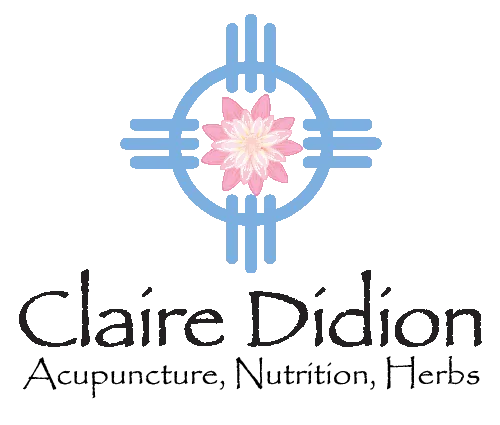In Japan, a special day called Shoni Shin day is set aside in acupuncture clinics for treating children. Clinics all over the city raise brightly colored flags printed with turtles or fish, reminding everyone that it is a special time to take care of children. Shoni Shin day is a children's wellness day scheduled each month, just before the full moon.
At the full moon, children go through changes. Symptoms come to the surface more readily. An observant parent will notice more fever, or that a child breaks teeth at the full moon. Children seem to
grow more at that time. It is good time to notice if they are dry or snotty, sleeping or not.
The full moon effects us
as it does the tides, drawing hidden problems to the surface to be
revealed. Because children are more sensitive to change, they react
more noticeably to these cycles. For the practitioner, observing a child month after month, information that is otherwise hidden is revealed at this time, this information can be used to facilitate fine tuning a child's growing body.
In order to prevent chronic disease patterns
developing, it is important to treat children preventatively to
strengthen the respiratory, immune and digestive systems. Children come
into the acupuncture clinic every month: they get touched and treated
and parents are educated for what they can do at home. Then when
children are brought in when they are sick, they already know the
practitioner: they are comfortable and not resistant to treatment. Acute
incidents are treated as they occur: a child may need to be treated
daily for 2 or 3 days when they are sick. However, by adhering to a
regular treatment schedule, these incidents diminish until they are minimal. Allergies
also are identified and treated early to prevent interference to growth
and development.
Pediatric acupuncture actually includes very little needling. Treatment consists of Shoni Shin
therapy, which is a light scraping of the skin along the meridians
using a smooth edge tool, such as the edge of a shell. It can also
include herbal therapies, massage, essential oils, herbal and
nutritional recommendations and light acupuncture.
After examining and treating the child, the acupuncturist
instructs the parents so that they may continue simple treatment
at home, minimizing the necessity for repeated office visits. Because
young children's systems are developing and have not yet crystallized,
they respond quickly to treatment, requiring fewer and shorter
treatments than adults.
For acute disorders, two or three treatments are often
enough to bring children back to health, since they respond quickly to
this kind of treatment. If a child in an acute stage of illness doesn't
responded positively to treatment within a few days, it usually
indicates a different therapy is required.
In case of chronic illnesses, such as asthma, children should be treated once or
twice a week for several weeks, or possibly every other day while it is severe, even if the child seems to be fully
recovered after only a few sessions. (In China they would be treated daily until they are stronger) Although it may seem bothersome to
take the time to bring the child in, it really is important to understand that
even if things change quickly on the outside, it takes time to
re-establish the child's inner balance to strengthen his/her own
ability to stay healthy.
Many parents have observed what happens when they let a child go back out to play and sweat in wind and cold too soon after recovery from a fever.
When acupuncture is used on children, needling is quick and painless with minimal
retention. In my experience, children do not identify the tiny needles
as threatening or the needling sensation as painful, nor are they
fearful unless someone (often the parent) suggests the idea of pain, by saying
'this isn't going to hurt.'
Once children have experienced Shoni Shin they want to come back for more, and in many families this preventative health care becomes a special ritual.
By the age of three, a child's personality and constitutional
tendencies are already in place, along with the their predisposition to
ailments. Strengthening the child's own healing abilities in these
weaker areas can contribute significantly to his future health.
Recognizing his strengths and respecting his limitations can offer
both parent and child an opportunity for empowerment and self-discovery
in their own natural state of health.
Because most of the habits we have as adults began to develop at a
very early age, the introduction of holistic therapies early in
childhood can prevent a lifetime of needless pain and suffering.
Psychologists recognize the impact of emotional traumas
in childhood, especially sexual abuse and violence, but less
acknowledgment is given to the fact that simply living in an atmosphere
of stress caused by social and school pressures, family tensions and
conflict can create traumas as well, laying down patterns that continue
for life. These experiences effect children emotionally, and each
emotional pattern eventually develops into physical symptoms, however
subtle.
Problems that respond readily to holistic therapies
include allergies, ear aches, digestive disturbances, stress, and sleep
and bladder problems as well. In fact many children are referred by
their pediatrician who is frustrated with continued rounds of
antibiotics for ear infections that create a cycle of weakness and
dependency.
Children respond very quickly to the therapeutic modalities we use in our clinic:
o Shoni shin
o Aromatherapy
o Chinese and western herbal therapies
o Nutrition
o Massage
Check for dates Shoni Shin is scheduled in our clinic. We are happy to answer any questions you may have regarding your child's health.
